The Pyrrhonian Skeptic
Interview by Richard Marshall.

[All images: Jens Haas]
Katja Maria Vogt is a specialist in ancient philosophy, ethics, and normative epistemology, and a recipient of the Distinguished Columbia Faculty Award. Vogt is interested in questions that figure both in ancient and contemporary discussions: What are values? What kind of values are knowledge and truth? What does it mean to want one's life to go well? Here she broods on all of this: on ancient inspired alternatives to doing ethics, on Pyrrhonian skepticism, what abstention from dogmata might mean, on how Pyrrhonians can act, on the defects of belief, on not solving Moore's paradox, on why the Stoic political theory isn't crazy, on why Stoics aren't scary, on changing the conversation in ethics by following the lead of Elizabeth Anscombe, on her own theory of agential action and ethics and on avoiding professional suicide when recommending books from her neck of the philosophical woods! This is one to turn your mind to the ever-urgent question: 'what's to be done?'...
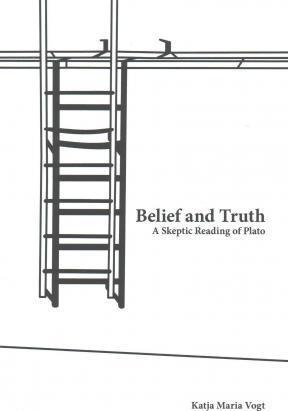
3:AM: What made you become a philosopher?
Katja Maria Vogt:The same thing that sometimes makes me reconsider my choice: people who are too sure of themselves.
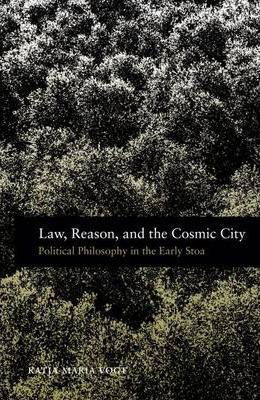
3:AM:You’re an expert in aspects of Ancient Greek philosophy but what’s interesting is how the issues they grapple with are still alive today. Is your work proof that philosophy doesn’t make progress, or is it evidence that what progress looks like isn’t what some critics of philosophy think it looks like?
KMV:I think of philosophy as a long-term, large-scale conversation. The ancients ask questions that one can phrase without first buying into a conceptual framework, in other words questions anyone can ask. Once you think through these questions, things can get very technical. But you start with things that can puzzle you simply as you go through life. This is a common denominator between ancient philosophy and contemporary philosophy, and to me anyway it makes for a strong connection.
So, progress? Of course the ancients don’t have everything figured out. I once had a student in an Aristotle class who asked me whether I think Aristotle is right that women can’t think, as the student put it. Well, there’s a nice paradox. At a minimum, or so I’d argue, ancient philosophers develop methods of inquiry that help one become a better thinker. I give them more credit, though. There are questions about the nature of value, knowledge and ignorance, epistemic norms, norms of assertion, and so on, where in my view it makes a lot of sense to engage with their views.
Along these lines, I’m wrapping up right now a book project entitled Desiring the Good: Ancient Proposals and Contemporary Theory. It is laying out an ancient-inspired alternative to the way G.E. Moore conceives of the question “what is the good?”. The Principia Ethica begins in this seemingly odd way, as if it was obvious that the main and first task of ethics was to ask what the good is. Surely, there are lots of ethicists who don’t think so. While I agree with Moore, I think one needs to spell out why this is the starting-point. And one needs to offer explicit reasons for the way in which one construes the question “what is the good?”. Here I depart from Moore, in ways that are ancient-inspired. Plato and Aristotle both think that the version of “what is the good?” that gets ethics started is “what is the good for human beings?”. They have lots to say about the difference between good and good-for; the relationship between the good for human beings and the good for, say, fish; and the good as the object of desire. These are the sorts of things where, to me, ancient philosophy is immediately alive. It takes a lot of work to make it, fully, a live contender. But the effort seems very much worthwhile to me.
The conversation I am interested in is also facilitated by the fact that most Greek philosophy pre-dates monotheistic premises. This doesn’t mean that for Plato, Aristotle, Chrysippus, Epicurus, and so on, there is no such thing as divinity. But for them it is a question, and not one to which the answer is simply available, how one should think of a god. And for all the ancients know, the soul may well be physical. The main interlocutors of ancient skeptics, Stoics and Epicureans, think so. This is one reason why ancient skeptics would not come up with external world skepticism. To them, it is an alien idea that ‘the mind’ is different in the relevant, radical way, from ‘the world.’ Instead it is a highly complex part of the world. I think this is along the right lines, and a good reason to study these theories.
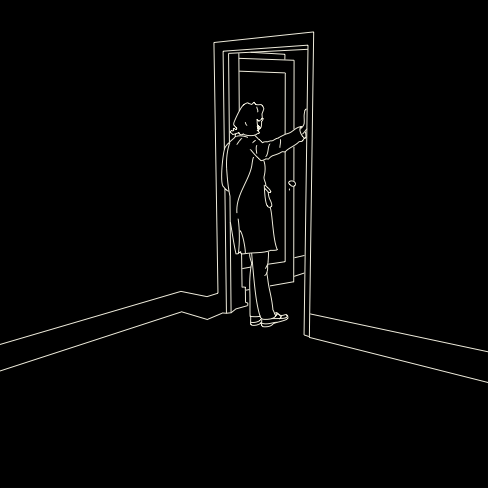
3:AM: The Pyrrhonian skeptic is a crucial figure in your work isn’t she. Can you sketch for us what makes this species of skepticism so interesting?
KMV: For better or worse, I think my deepest motivation remains a dislike of unqualified assertion. I share the skeptical idea that embracing falsehoods has significant practical impact. This idea is behind all ancient skepticism, Pyrrhonian and Academic, and very different from external world skepticism. Declarative statements that may be false are risky. We act based on what we take to be information, and run into trouble. It seems natural to me that, for pretty much everything, less than full credence—and less then full assertion—is warranted. And I think that ordinary language is on my side. We routinely use qualifiers such as “for all I know” and the likes. Or we do this implicitly, using sentences that, on the surface, have the form of assertions, but we say “hmm…” or signal to our interlocutors in some other way that we’re not fully sure: we’re telling them what seems to us, and we flag that this may not be what really is the case. I recently turned to spelling these things out independent of ancient sources, in papers co-authored with Jens Haas, on ignorance and action.
In general, I want to pursue these ideas with respect to challenges today. Here is one such paradox: assume the norms of assertion say we all should use a lot more qualifiers, refraining from full assertion; and assume the gender dynamics and workings of bias in professional philosophy are such that we should encourage female students to drop qualifiers because if they do not, their modes of speech are perceived as self-deprecating. Where does this leave us? Do women not have the luxury to rationally respond to the difficulty of the questions we all tackle?

3:AM: How do you understand their idea of abstaining from dogmata?
KMV: As a philosopher, you are likely to find certain ideas compelling. And you are also likely to be aware of relevant objections. Even if you aim to reformulate your ideas in the light of these objections, you may feel the pull of considerations that your approach cannot accommodate. This is precisely what abstaining from dogmata means: you are still thinking it through, and you are not pretending that the matter is settled.
3:AM: Can the Pyrrhonian state her position? Wouldn’t any statement be self contradictory, along the lines of ‘I believe nothing.’ Isn’t any assertion a problem? Are the Pyrrhonians condemned to silence?
KMV: Metrodorus, a pre-Socratic atomist, puts things nicely: None of us knows anything, not even this, whether we know or do not know; nor do we know what ‘to not know’ or ‘to know’ are… So the ancient skeptics were duly warned. They did not walk into the trap of saying “I believe nothing” or “I know nothing.” Instead they say that they continue to investigate. And yes, I think they can say this–that they continue to investigate–without getting in trouble. Pyrrhonian skeptics say that they ‘lay open’ what is going on in their minds. On my analysis, this manner of speaking has the form “X appears F to me now.” It is called a report, as opposed to an assertion. It is intentionally elliptical, i.e., it is supposed to be different from “X appears to be F for me now.” The idea is that, by dropping “to be” one doesn’t refer to reality. This is where things become troublesome. Elliptical utterances only work because others understand them as equivalent to their non-elliptical versions. Others will think that “X appears F to me now” just means “X appears to be F.” Skeptics, or so I have argued, can communicate, but only by relying on non-skeptical speaking conventions as default interpretations of their talk.
3:AM: You argue that Michael Frede is wrong to think the sceptic has an alternative kind of belief to the usual one and say that they have no beliefs. What kind of mental life do they have if they have no beliefs? Is theirs a life of continuous inquiry? Is this where Socrates is coming from?
KMV: Skepticism is formulated in controversy with its opponents. It proceeds by ‘borrowing’ their terms. For purposes of addressing the question “do the skeptics have beliefs?”, the only plausible notion of belief is the notion that Stoics and Epicureans employ. And they employ an on/off notion of belief where beliefs are actively formed judgments. This is why I disagree, in a sense, with Frede. He ascribes beliefs of a sort to the skeptics that, in the debates that skeptics are immersed in, just do not count as beliefs. In another sense I agree with Frede. There are doxastic attitudes that today we characterize as beliefs and that are not actively formed judgments. Skeptics can hold those attitudes. As I see it, skeptics cultivate ways of thinking that typically leave one with less-than-full belief, hypotheses, interrogative attitudes, and so on. I’m invested in spelling out a larger picture, also in ethics, on which this is an ordinary way, and a good way, to think and live.
And yes, it is Socratic. Like Socrates, I think that important questions tend to be pretty hard. It is not to be expected that, without a commitment to long-term investigation, one gets things right. In Plato’s dialogues, the question that gets ordinary people into ethics is how to raise their kids, which teachers to send them to, and so on. Plato thinks this is one of the hardest questions, for it is the question of what is good for human beings. This seems right to me. And it seems to me that parents typically never conclude their thinking about this, even though they do one thing or another all the time to help their kids grow up well. Indeed, I think kids greatly prefer parents and teachers who have not made up their minds once and for all, about, say, gender norms or whatever it may be. Work-in-progress-thinking is not a failure, precisely where things matter; it is a rational response to the fact that things matter.

3:AM: If I don’t have beliefs I might think that I can’t act – and if they can’t act they can’t inquire. The Pyrrhonian has no beliefs according to you – so how do they act?
KMV: Pyrrhonian skeptics have been under attack for this since antiquity. I have distinguished a couple of versions of the problem. The Animal Charge says that, without beliefs to the effect that x is good and y to be done, the skeptic does not act rationally, but instead merely like an animal. The Paralysis Charge says that, in following appearances (which the skeptics say they do) one may often have too many and conflicting things to do. Like in Buridan’s example, if “walk to the right” seems to you and “walk to the left” seems to you, and that’s all you have—no further criterion that prompts movement one way or another—you may not walk at all. The Inconsistency Charge says that the skeptic, by leaving a room through the door rather than walking into the wall, is shown to be inconsistent. Contrary to her claims, the skeptic believes that “this is the door” just like the rest of us. And so on. I’m interested in these questions for two sets of reasons. First, I think they zoom in on core problems in the philosophy of action. Second, I am invested in developing an account of rational action without full belief or knowledge.
3:AM: Is it your claim that not just the Pyrrhonians but also Plato, skeptical Academics and the Stoics thought of Beliefsas defective, ‘shameful’ cognitive attitudes. Does this mean that they all thought that no belief can be true or false?
KMV: Yes, though for a variety of reasons. The most technical reason is formulated by the Stoics: they think that strictly speaking propositions are true/false. Basically, I think the Stoics are right about this. Chrysippus, the leading Stoic logician, said that he’s not interested in policing the language. In that sense, it’s alright with me if people say that beliefs are true/false. But I think it is more precise to assess the contents of beliefs, i.e., propositions, as true/false.
You quote from Plato’s Republic. “Shameful” refers to the idea that one shouldn’t assert what one doesn’t know. When Socrates is asked “What is the good?” he refuses to put forward a mere belief (doxa) and says that doing so would be shameful. What does he do instead? He offers comparisons, models, and hypotheses in order to think them through. This seems like the right way to go. That is, not knowing the answer to “what is the good?” is not a reason to stop talking and thinking about it. Far from it! This is the spirit in which I’m doing ethics even though I’m an ancient skeptic at heart. Not endorsing an account of the good is one thing. Wanting to figure out what is good is another, and entirely compatible with it.
3:AM: The position seems to make knowledge a rare thing for these philosophers. Does it make knowledge something very different from belief, and rules out ideas of knowledge as a species of belief (eg justified and true belief)? Tim Williamson has argued for not seeing knowledge as being grounded on belief, so should contemporary epistemology take these Ancient guys seriously?
KMV: Yes, knowledge is a rare thing! Still, I don’t think that we should just give up on knowledge and talk entirely in terms of lesser doxastic states. In the end, I guess the fact that we want knowledge and find it valuable doesn’t go away, even if knowledge is elusive. And yes, to know something is not to hold a true/justified/etc. belief. The word that is translated as “justification” when people say that Plato anticipates the JTB account of knowledge—that knowledge is true justified belief—is “logos.” Logos, however, is better translated as “account.” Plato thinks that, when one works one’s way toward an account, one is getting rid of one’s earlier doxastic attitudes. The account is going to replace them.
That seems pretty plausible to me: the doxastic attitudes you may have had during the first weeks of Chemistry 101 don’t survive when you become a scientist. That doesn’t mean that the things you learnt in the first few classes were false. It means that once you get a grip on the relevant concepts, become familiar with larger-scale theories in chemistry, and acquire the ability to develop these theories further, you’ll think different thoughts.
And: “yes” on your question whether contemporary philosophers should take ancient epistemology seriously. Williamson also seems aware that his epistemic view on vagueness is pretty much the Stoic view. I say pretty much because there’s a difference: the Stoics never do just epistemology, they do normative epistemology. Their interest in vagueness is related to their interest in training oneself to be able to pause, not say “yes” or “no,” in cases that seem borderline. They play sorites games in logic class in order to cultivate the ability not to assent rashly.

3:AM: Is ‘I believe it is raining outside but I know it isn’t’ no longer a self –contradiction on this position? Does your position solve Moore’s paradox?
KMV: Well, that would be nice! But I guess one can only solve Moore’s paradox if one shares its premises. And those include the very premise that I reject, namely that to know that it’s raining entails that one (also) believes that it’s raining.
Suppose someone talks herself into thinking that mist in the air is evidence that it’s raining. She’s very much hoping for rain—she’s a farmer and fears that her crop otherwise goes bad. Or consider an alternative background story—she promised herself that she’ll go running if it’s not raining, but she hates running; and now the mist really looks rather rain-like to her. The farmer and the would-be runner may in the back of their minds know quite well that it is not raining. But they get themselves to believe that it is raining. This is belief/doxa of the sort I’ve been writing about: a changeable attitude, badly integrated with one’s firmer epistemic attitudes, subject to wishful thinking, and so on.
How does this bear on Moore’s paradox? The upshot is, I guess, that there’s not so much a paradox, but a lack of integration of the person’s mental states. And this is what interests me. There may be failures to integrate that are rather charming. Say, your sciency lover and life companion doxa-thinks it was fate that you two met, a belief that is entirely at odds with everything a scientist may take herself to know about the world. But on the whole, integration seems better. Wishful thinking, not wanting to believe what the evidence suggests, wanting the evidence to suggest something we are antecedently invested in, and so on, are pervasive phenomena. On the larger picture I defend, these are topics that ethics and normative epistemology, in conversation with philosophy of mind and cognitive science, must explore. And the case of the moonstruck scientist suggests that we may even want to keep an open mind on whether integration is always better than not-integration.

3:AM: You’ve looked at Stoic political theory. Did they place perfect rationality as the constitution of their ‘Cosmic City’ and virtue? What did they mean when they call the cosmos a city? Can you sketch for us what the Stoic political philosophy was and why you don’t think it’s as crazy as some have thought.
KMV: You’re right, I don’t think it is crazy. Indeed, I don’t think it is crazy at all. The main upshot of Stoic political theory is that all human beings are fellow-parts of the world and have to find a way of living together in the world. I think this is right. I think traditional political philosophy is wrong to assume that we ‘only’ have to figure out how to live together in a given state, though that of course is already a tall order. But it’s just one component of the larger task each of us has, namely, to be a good part of the world. The Stoics mean this quite literally. They are physicalists who think of the world as a complex whole with parts. We are some of these parts. Tigers, palm-trees, glaciers, grains of sand, and so on and so forth, are other parts of the world. We are fellow-parts also of them, though not in the same way in which we are fellow-parts of the world with other human beings. This latter relationship is ‘political’ in the sense that we have to figure out how to live together in the world.
The contentious idea here is whether there can be a normatively relevant relationship between ‘everyone.’ Sam Scheffler, for example, thinks that only special relationships (say, between friends or family members or fellow New Yorkers) can be normatively relevant. A relationship between everyone, the thought goes, just isn’t a relationship. This is where the Stoics, and I, disagree.
It’s been a while that I’ve written on this, but I recently had a chance to lay out this kind of cosmopolitanism at the book launch for Cruft/Liao/Renzo’s Philosophical Foundations of Human Rights. I am quite committed to a cosmopolitan approach to human rights, starting from the idea of human beings as fellow inhabitants of the world. And I’ll continue to spell this out in contemporary terms.

3:AM: Perfect deliberation seems worrying – so many sc-fi programmes have shown how the perfect reasoning of the machines and computers threatens rather than enriches. Isn’t this why the Stoics and their sages are dangerous? Isn’t it the Weberian bureaucratic mind gone wild?
KMV: Luckily, my Stoics are not that scary. One of Frede’s proposals is to take seriously that ancient skeptics and Stoics come in tandem. They are like two camps in one of today’s debates. They keep talking to each other and they share the terms of the debate. And they share premises. First and foremost, that it is hard and important to figure out what to do. Second, that, given the way the human mind works, we easily jump to conclusions. We do that all the time and for all sorts of reasons. For example, we jump to the conclusion that someone was offending us, and get angry. Or we jump to the conclusion that “7 is many” because the logic teacher, who plays a sorites game with the class, manipulates us into being too hasty. And so on.
So the claim is that we need, more than anything else, the ability not to accept impressions in rash ways. The skeptics develop forms of argument that reliably keep us away from rash assent. The Stoics put forward a set of epistemic norms that have the same objective. And they construct a model of a perfect reasoner. This helps them spell out what reasoning would look like in a person who forms no beliefs and who has attained knowledge—and, importantly, the affective attitudes that reflect this knowledge are affective attitudes of wanting things to go well for others. But none of the Stoics think that they are this perfect reasoner. Instead, the aim of the perfect reasoner-model is to find some strategies for the likes of us, flawed and imperfect, to do better. This is what interests me.
Here is a disclaimer. I said “my Stoics” because the Stoics I’m talking about are people like Zeno and Chrysippus, interlocutors of the skeptics. This constellation stays in place for a while. For example, Cicero, whose treatises contain lots of skeptic-Stoic debates, self-identifies as an Academic skeptic. But there are also Stoics who aren’t my Stoics. They populate much of the pre-Barnes/Cooper/Frede/etc. secondary literature. They are too preachy and admonitory for me. They lack the edge and the epistemic modesty that comes from talking to skeptics.
3:AM: How has the Aristotelian idea that agents want their lives to go well fused with proposals coming from Elizabeth Anscombe in your recent work on ethics? Are your arguments and the position you establish aimed at changing the way contemporary ethics is done, or at least an attempt to put back key elements from Ancient sources that you think are currently missing?
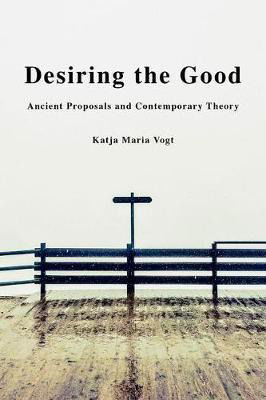
KMV: It’s interesting that you ask this. The answer is yes—the new book you are referring to, Desiring the Good, is an effort to change the conversation in ethics. In “Modern Moral Philosophy,” Anscombe says that before doing normative ethics we should do philosophy of psychology. People often take this to mean “moral psychology”; but that doesn’t seem quite right. At the time when Anscombe wrote, people in Oxford used “philosophy of psychology” pretty much as we today use “philosophy of mind.” And this is the path Anscombe herself took. She started philosophical debates about intention and about pleasure, ever since major topics in the philosophy of mind.
I want to pursue this path, and I think that Plato’s Philebusas well as Aristotle’s Nicomachean Ethicslay out the kind of approach in ethics that Anscombe was gesturing at. Here ethics starts out with normative questions, but quickly hits the breaks: it becomes apparent that, if we want to get clear about what is good and bad for human beings, we need a better grip on what is going on in our minds. How does motivation work? What kinds of cognitive activities make up our mental lives, and how do they mix with affective attitudes? And larger questions follow suit: if we examine human decision-making, we will need to better understand the metaphysics of the domain of action. We need to understand contingency and what Aristotle calls for-the-most-part regularities. Say, when you explain to a kid why she shouldn’t hit her sibling, you’ll say “it hurts!” and “she’ll be upset.” Now, of course one can think of instances of one person hitting another person that don’t hurt and there are people who don’t get upset when hit. But we say “it hurts” and “she’ll be upset” anyway, and we believe that this rightly orients action. These are for-the-most-part regularities. Part of the upshot is that McDowell’s insight in the metaphysics of the sphere of action is seriously incomplete. He argued, and lots of people accepted, that situations in which we act are particulars. That seems right. But it is equally important that the sphere of action displays for-the-most-part regularities. Otherwise there would be no rational planning and ethical thinking.

When thinking about what to do, we need to assume that patterns and non-necessary regularities are in place, in people and in the sphere in which we act. Aristotle likes comparisons with medicine and navigation. Consider a boat trip. There’ll be particular moments where the sailor’s reactions have to be spot-on, acting quickly in the light of given features of this particular situation. But there’s also planning and that takes non-strict regularities into account. Making up her mind when to sail and whom to take along, she’ll think thoughts like: there’s more/less wind in the morning; there are more/fewer storms in August than July; fellow-sailor Queequeg is the best harpooneer; for the kind of trip we have in mind, we need a boat like Quint’s; and so on. But none of these regularities are strict. This year’s July may be atypical; Queequeg may miss; something may come up and a bigger boat is needed; and so on. The challenge of practical thinking is to take non-strict regularities into account, not mistaking them for the absence of regularities and not mistaking them for strict regularities either.
How does this relate to my work on skepticism and normative epistemology? As a student, I found convincing Plato’s and Aristotle’s claim that ethics is not for the young. It’s too hard, in part because, if understood along the lines I sketched, it involves forays into philosophy of mind and psychology and epistemology and metaphysics. So I thought it worthwhile to spend a couple of decades to collect at least some of the pieces of the puzzle. And more recently I have started to put these pieces together.
3:AM: Can you sketch your theory of agential action and ethics?
KMV: Standard versions of the Guise of the Good say that in any action, the agent is motivated by seeing the action or its outcome as good—and these standard versions take themselves to be Aristotelian. I argue that they miss Aristotle’s core idea, namely that agents aim to have their lives go well. That is, the Guise of the Good in Aristotle is not exclusively and not primarily a theory about small-scale actions. I introduce a three-fold distinction between small-scale particular actions, mid-scale actions (pursuits), and the largest-scale motivation to have one’s life go well. Based on this distinction, I defend what I take to be a genuinely Aristotelian version of the Guise of the Good.
Though I’m pretty much done with this book manuscript, I have a few related things that I want to work more on, including the Aristotelian dictum that deliberation is about the possible and the role of epistemic norms in ethics. The latter is, of course, the common denominator of everything I’ve done so far.

3:AM: And for the readers here at 3:AM, can you recommend five books (other than your own) that will take us further into your philosophical world?
KMV:Well, I’m sure you heard that ancient philosophers, as in philosophers working in ancient today, are a prickly bunch! For any of us to recommend five books, i.e., not to recommend hundreds of other books, could only amount to instant professional suicide. With that in mind, here are five books that, at least in spirit, deeply shaped my views. For anyone who has a couple of decades to spare, Plato’s Philebusis it; for anyone interested in ancient skepticism: The Original Skeptics: A Controversy; Thomas Nagel’s The View from Nowhere, squarely within the monotheistic paradigm or rather, within the set of premises that are its philosophical counterpart, but a creative masterpiece; Aristotle’s Metaphysics, like the Philebus for those who want to keep busy for the rest of their lives; and for more lighthearted moments, Bernard Williams’ Moral Luck
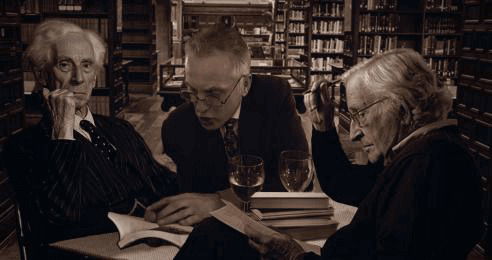
ABOUT THE INTERVIEWER
Richard Marshallis still biding his time.
Buy his book hereto keep him biding!